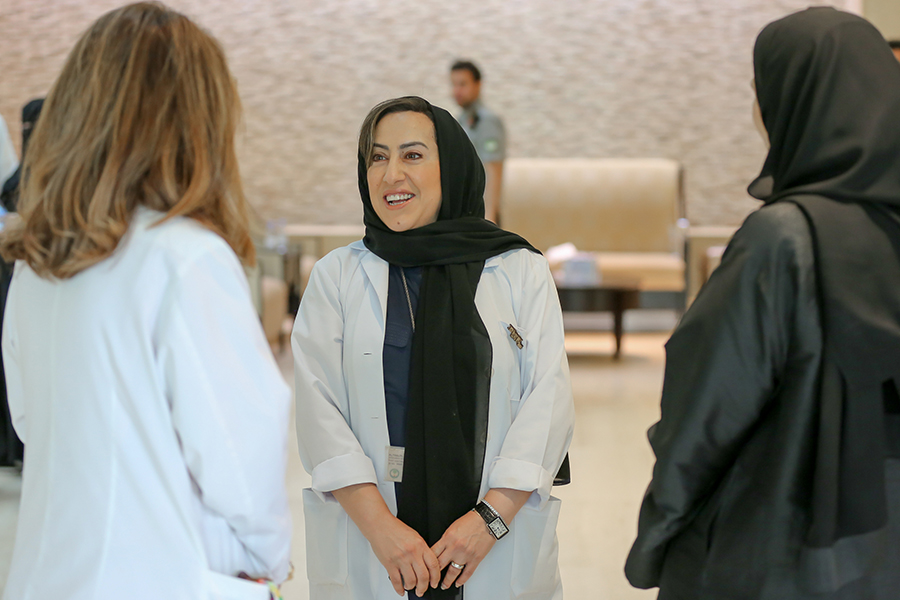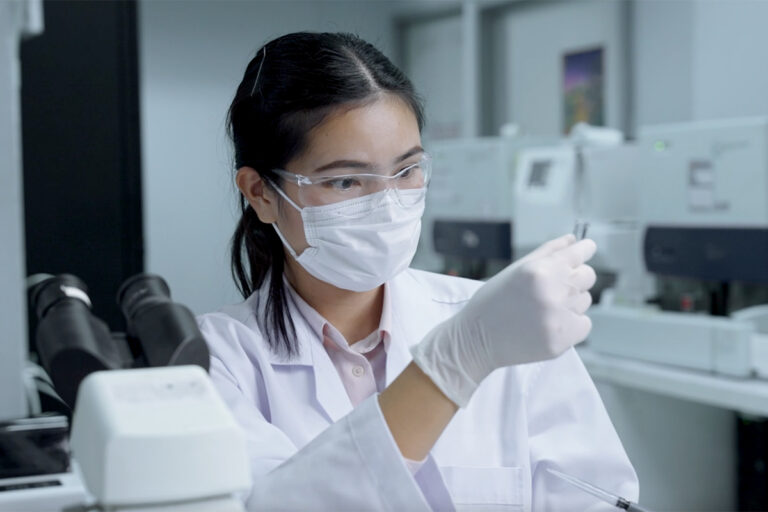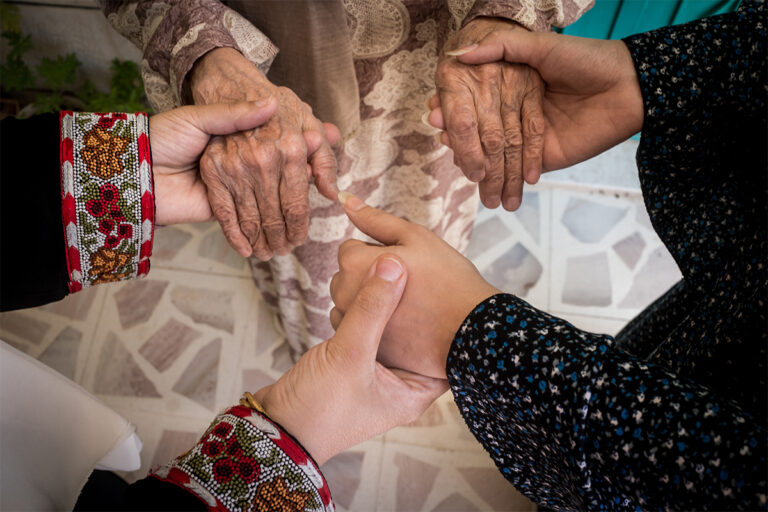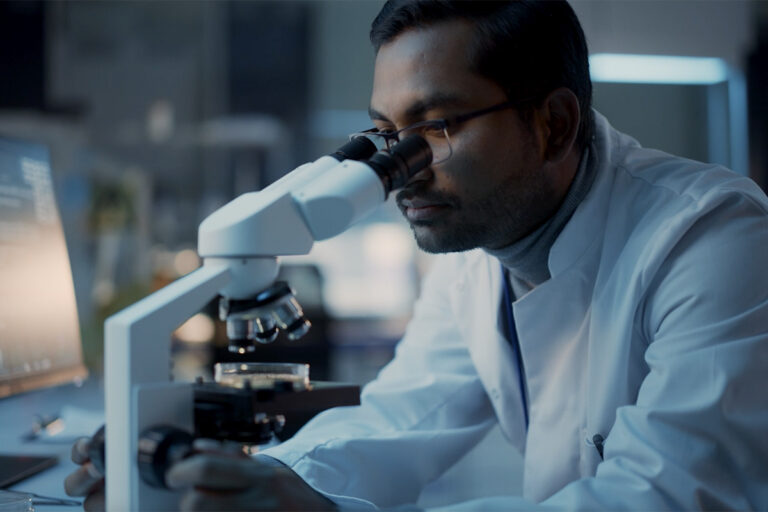Medical scientist Yasmin Altwaijri is one of a new breed of high-achieving Saudi women. On the front line of Saudi Arabia’s research into the causes and treatment of mental health, obesity, diabetes, and other contemporary ills, Altwaijri is an inspirational role model for thousands of young Saudi women building their careers in science and technology.

As the pace of reform accelerates in Saudi Arabia, talented and creative women are rising to the top across all areas of science and technology.
The so-called STEM subjects of science, technology, engineering, and mathematics are popular study choices for young Saudi women. In total, 28% of scientific researchers in the Kingdom are women, in line with the global average of 30%. Many women who graduate with STEM degrees from Saudi Arabia undertake advanced study in the U.S. or other nations and return to assume senior roles at institutions in their home country, where their work often earns them an international reputation.

Foremost among the new cohort of female scientists is Yasmin Altwaijri, who has carried out groundbreaking research in two areas that have become national priorities as Saudi society modernizes: obesity and mental health. Altwaijri’s study of the rise in obesity in the Kingdom inspired the government’s Quality of Life program and its support for fitness, sports, gyms, and healthy lifestyles.
More recently, Altwaijri has turned her attention to the issue of mental health. As one of the driving forces behind the Saudi National Mental Health Survey, Altwaijri was instrumental in measuring, for the first time, the scale of mental health problems in Saudi Arabia. Some 4,000 people across the country were interviewed for the study.

The findings from the survey have inspired a new effort to raise awareness of mental health issues across the Kingdom, and to marshal resources for initiatives to prevent, detect, and treat mental health problems.
A keen believer in the potential of digital healthcare technology, Altwaijri is now helping to roll out new apps and health services that will help Saudi Arabia fight some of its most pressing health issues.
“Saudi Arabia is facing the same health challenges as any other developed country,” she says. “Digital healthcare products can give us the solutions we need to fight these global epidemics.”
Q&A with Yasmin Altwaijri, Head of Epidemiology Research, King Faisal Specialist Hospital and Research Centre
How is the role of women in Saudi science changing?

Science is increasingly seen as a great career opportunity for women in Saudi Arabia. Because we have women-only classrooms, female students who are interested in science are not put off by the prospect of a predominantly male atmosphere. After they finish their studies, many women become very involved in the work of scientific institutions.
The government has prioritized initiatives that are supportive of women. As a member of the Al-Nahda Philanthropic Society for Women, I am focused on helping to empower Saudi women socially and economically, and on achieving further gains for women in the workforce in science and other fields.
At the G20 summit in Riyadh next year, Al-Nahda will be organizing the Women 20 meeting, and we hope to achieve further gains for women in the workforce.
How are you building on the work of the Saudi National Mental Health Survey?
The results of the survey were similar to those of other countries and showed that about 35% of the population has had a mental illness at some point.
The question is, what do we do now? We need to develop training programs and increase resources in this area. That will take time. There simply are not enough mental health professionals to treat everyone, so we are also looking at digital technology as a solution.
“Digital healthcare apps are easy to scale nationally. If they are in Arabic, we can use them across the whole region.”
Yasmin Altwaijri, Head of Epidemiology Research, King Faisal Specialist Hospital and Research Centre
How receptive is the Saudi healthcare system to digital innovation?
There is a culture here of wanting to leapfrog and do the next big thing today and not tomorrow. This new attitude has a lot to do with our bold and ambitious leadership and with Vision 2030. It trickles down through the culture and we can feel it at every level in every sector.

Do you think Saudi Arabia is ready to tackle 21st-century health problems such as depression and obesity?
Saudi Arabia faces the same health problems as other developed countries. My daughter just graduated in the U.S., and when she came back to Saudi Arabia there was no culture shock. The lifestyle is very similar in many ways. And because young Saudis are such heavy smartphone users, I think there is a great opportunity to treat people in their homes using apps. Saudi digital health developers can create products that are culturally relevant. And I hope many of these developers will be women!![]()
As published in FORTUNE magazine









